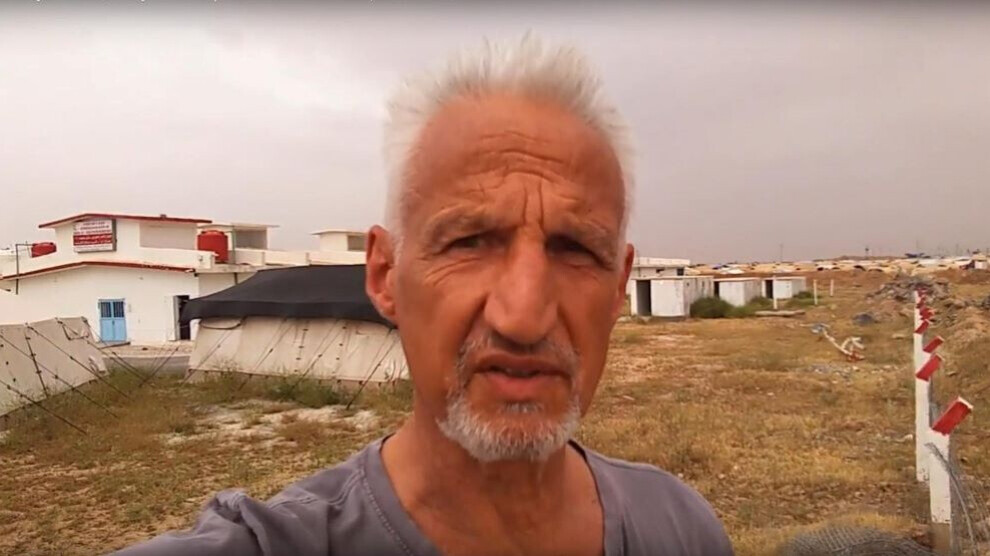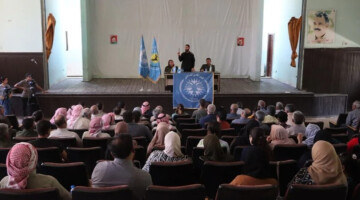The Waşokanî camp for refugees houses 14,000 people in tents under the most adverse conditions. The second camp, Serêkaniyê, with 11,000 residents, is also located near Hesekê, a city/suburb with a population of approximately one million. The camp is named after the city of the same name, which was invaded by Turkish army and Islamist troops of President Erdogan in October 2019. Serêkaniyê was a beautiful, Kurdish-majority town located right on the border of Turkey. On the other side of the political demarcation line, Kurdish people also live, separated from their relatives in Syria by a border drawn by victorious powers after the end of the Ottoman Empire.
Example of social change
The Kurdish population was oppressed on both sides. However, with the increasing loss of power of the ruler Assad, starting from the Arab Spring, a self-determined autonomous movement was able to establish itself in the north of Syria, which declared grassroots democratic principles and the equality of men and women as its goals. It subsequently succeeded not only in driving out the terrorist Islamist ISIS at great cost, but also in asserting itself against the Assad regime. The expansion and consolidation of the area in northeastern Syria, the inclusion of all ethnic groups living in the area in the attempt to create a self-determined society and, above all, the changed social position of women developed positively. This is a much-appreciated example of social change in self-determination, in extreme contrast to the social structures of the surrounding countries and virtually a nightmare for the Islamists and the authoritarian autocrats of Erdogan's ilk.
Alliance commitments to the Erdogan regime
Rojava's badly damaged infrastructure was partially rebuilt, and houses, schools and even clinics were repaired, largely under the government's own steam and with the help of international donations. State aid from abroad was almost completely absent, the high toll in the fight against ISIS with over 10,000 dead and 20,000 injured was not repaid with reconstruction aid, the alliance obligations to the Erdogan regime, the NATO partnership, the economy and above all Turkey's gatekeeper function towards refugees weigh too heavily.
Germany and EU are complicit in Turkish crimes
The West's ducking and stalling policy continued even when Erdogan invaded Rojava's territories militarily several times. The invasion of Afrin in spring 2018 and that of the area between Serêkaniyê and Girê Spî in 2019 displaced hundreds of thousands of people from their ancestral territories, leaving many dead and seriously injured. The EU and the German government did nothing and not only made themselves complicit in the invasion and crimes by continuing to supply weapons. Thousands who could not find accommodation with relatives or have the means to build a new house are still living in schools, or worse, in tent cities. Like just here in the Waşokanî and Serêkaniyê camps with 25,000 people.
Economic burden due to lockdown
Next door, in the Corona Clinic of the Kurdish Red Crescent (Heyva Sor a Kurd), people are struggling to breathe. The nurses of the Kurdish Crescent are doing everything they can with scarce resources. The declared lockdown is necessary, but economically burdensome for the region, which is exhausted by the war and Erdogan's attacks.
If nothing else, the use and distribution of the saving vaccine reflects the global relations of power, privilege and domination. So far, about two-thirds of the vaccine has been delivered to just six countries worldwide. Here in the Waşokanî camp, no vaccine has yet arrived, nor has it reached the rest of the region. Yet it is so urgently needed.













